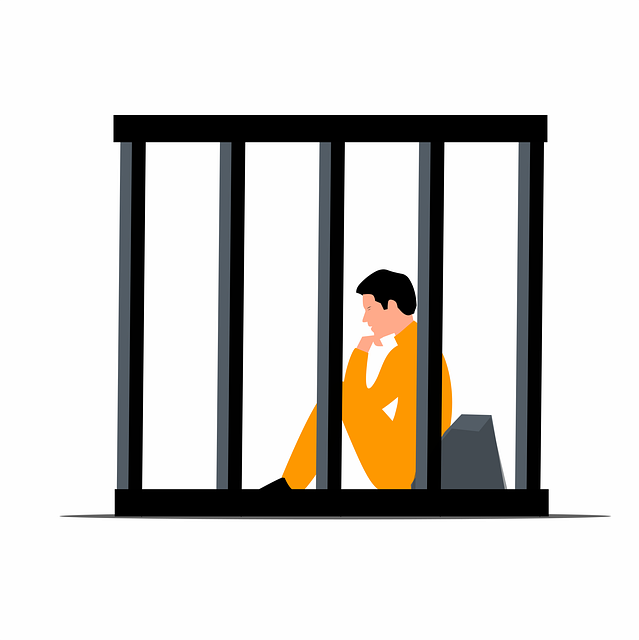Criminal law, a cornerstone of global legal systems, deals with harmful or dangerous behaviors, ranging from misdemeanors to felonies. It guides the entire criminal justice process while protecting both victims' rights and the presumption of innocence. Key principles like the right to a fair trial, due process, and restorative justice models have evolved alongside technology and societal awareness of mental health issues. Case studies highlight practical applications, showcasing how theoretical concepts impact justice administration and driving reform efforts in response to emerging challenges.
Delve into the intricate world of criminal law, where justice meets legislation. This comprehensive guide explores the fundamental concepts and latest trends shaping the criminal justice system. From understanding definitions and rights to real-world case studies, we navigate the key principles governing this vital legal domain. Stay informed with insights on recent developments, as we uncover how criminal law evolves in response to societal changes.
- Understanding Criminal Law: Definitions and Scope
- Key Principles and Rights of Criminal Law
- Recent Developments and Trends in Criminal Justice
- Case Studies: Examining Real-World Criminal Law Applications
Understanding Criminal Law: Definitions and Scope

Criminal law is a complex and critical pillar of legal systems worldwide, focusing on the regulation and punishment of conduct that society deems harmful or dangerous. It defines and punishes crimes, ensuring public safety and order. At its core, criminal law involves understanding the elements that constitute a crime, the rights of both victims and accused individuals, and the appropriate penalties for various offenses.
The scope of criminal law is vast, encompassing a wide range of offenses from minor misdemeanors to severe felonies. It deals with issues like theft, assault, fraud, and more serious crimes such as murder and aggravated assault. This area of law also includes procedures for investigation, arrest, trial, and sentencing, ensuring that the rights of both parties are protected while maintaining a fair and just legal process.
Key Principles and Rights of Criminal Law

In the realm of criminal law, several key principles and rights form the backbone of fair and just legal proceedings. At the heart of this lies the presumption of innocence, a fundamental concept where every individual is considered innocent until proven guilty beyond a reasonable doubt. This principle ensures that the burden of proof rests squarely on the prosecution, protecting the rights of the accused. Furthermore, the right to a fair trial is paramount, guaranteeing defendants the opportunity to confront witnesses, access legal representation, and present a defense without undue hindrance.
Other crucial aspects include the right against self-incrimination, allowing individuals to remain silent and avoid incriminating themselves, and the guarantee of due process, ensuring that legal procedures are followed and all persons are treated equally under the law. These rights and principles not only safeguard citizens but also uphold the integrity of the criminal justice system, ensuring that justice is served while protecting the freedoms and dignity of every individual involved.
Recent Developments and Trends in Criminal Justice

In recent years, the landscape of criminal justice has seen several notable developments and trends shaping legal practices worldwide. One prominent shift is the increasing focus on restorative justice models, which emphasize reconciliation and rehabilitation over punitive measures. This approach aims to address the root causes of crime, reduce recidivism rates, and foster a sense of community healing. Additionally, advancements in technology have revolutionized criminal law, with data analytics playing a crucial role in predictive policing and improving investigation techniques.
Another significant trend is the growing recognition of the importance of mental health and addiction issues within the criminal justice system. Courts are increasingly considering these factors when sentencing individuals, reflecting a shift towards more compassionate and comprehensive approaches to justice. Moreover, the global dialogue on systemic racism and its impact on criminal law has led to reforms aimed at promoting equity and fairness in law enforcement and court procedures. These developments underscore the dynamic nature of criminal law, constantly evolving to meet societal needs and address emerging challenges.
Case Studies: Examining Real-World Criminal Law Applications

Delve into the realm of criminal law through insightful case studies that offer a glimpse into its real-world applications. These examinations provide an invaluable perspective, allowing practitioners and enthusiasts alike to understand how theoretical frameworks translate into practical justice. By analyzing specific cases, we uncover the intricate interplay between legal principles and societal impacts, shedding light on both successful prosecutions and potential areas for reform.
Case studies in criminal law serve as powerful tools for learning and advocacy. They demonstrate the dynamic nature of this field, where every decision can have profound consequences. Through these narratives, readers gain insights into the challenges faced by investigators, prosecutors, and defenders, ultimately fostering a deeper appreciation for the complexities inherent in administering justice.
Criminal law, with its intricate web of rules and principles, plays a pivotal role in shaping society’s response to crime. By understanding its definitions, key rights, and recent trends, we gain valuable insights into how our justice system operates. The case studies presented offer tangible examples of these abstract concepts in action, highlighting the dynamic nature of criminal law. Staying informed about these developments is crucial for both legal professionals and citizens alike, as it empowers us to navigate the complexities of the criminal justice system and advocate for fairness and justice.
